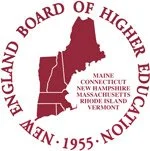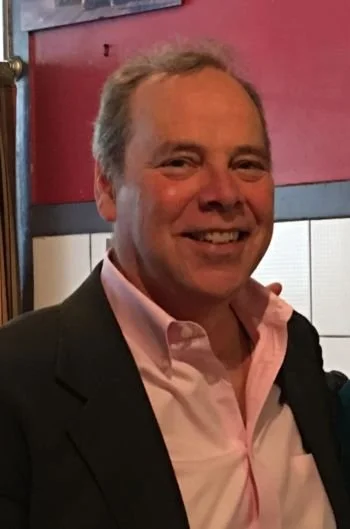John Harney: Many thanks, New England
John O. Harney
From, The New England Journal of Higher Education, a service of The New England Board of Higher Education (nebhe.org)
BOSTON
In October, I wrote to NEBHE colleagues to let them know I would be retiring from the organization and the editorship of its New England Journal of Higher Education (NEJHE) in early January 2023.
While NEBHE has been my job, NEJHE has been my passion. I joined NEBHE in 1988 and, in 1990, became editor of NEJHE (then called Connection: New England’s Journal of Higher Education and Economic Development).
Thirty-four years for one outlet. Sometimes I forget I’m even that old.
I looked at the journal editions, printed on paper until 2010, as pieces of art (albeit imperfect ones) as much as a news service. The best issues I thought were like our own “Sgt. Pepper’’ album. Today, reminds me a bit of Bob Dylan’s “Maggie’s Farm.’’
I’ll miss working with our distinguished authors, sometimes goading them into writing their bylined commentaries—usually for no fee. Those writers also happened to be our readers … a community of policymakers, practitioners and regionalists we described variously as “opinion leaders” in the old days, “thought leaders” more recently. All bound together by an interest in higher education and New England (which I recall was a tough audience to quantify for analytically retentive advertisers).
I’ll also miss the editorial “departments” we developed, such as Data Connection, a sort of spinoff of the Harper’s Magazine Index, but with a New England and higher education flavor. Reflective of a certain “NEJHE Beat,” these items—like a lot of NEJHE content—track along a unique constellation of issues anchored in higher education but also moored to social justice, economic and workforce development, regional cooperation, quality of life, academic research, workplaces and other topics that, together, say New Englandness.
In our print days, I was especially invested in my Editor’s Memo columns that opened every edition from 1990 to 2010.
A few of these Editor’s Memos noted the transition from Connection to NEJHE, an illness that forced me to take leave in 2007 and the journal’s shift from print to all-Web in 2010.
Many pieces looked at the future of New England. One touched on our mock Race for Governor of the State of New England. That exercise helped midwife New England Online, an attempt by NEBHE and partners to take advantage of then-new networking technologies to provide something of a clearinghouse of all things New England—a bit unfocused perhaps, but poignant in a region where, the “winner” of that fantastic New England governor’s race, then state Rep. Arnie Arnesen of New Hampshire, quipped that the capital of New England should not be, say, Boston or Hartford, but instead something along the lines of “www.ne.gov.” (See our house ad.)
The House that Jack Built focused on the first NEBHE president I worked with, Jack Hoy, who passed away in 2013. Jack was a mentor who pioneered understanding of the profound nexus between higher education and economic development that is now taken for granted and that served as the basis for the journal’s name, Connection.
Among other of these commentaries and columns, several focused on the magical relationship between higher-education institutions and their host communities. Even in the emerging age of a placeless university, there is no diminishing the correlation between campuses and good restaurants, bookstores, theaters and other amenities, driven by faculty, students and otherwise smart locals.
In this vein, I was personally sustained for more than three decades by NEBHE’s home in Boston. Despite its difficult racial past (which NEBHE and NEJHE have attempted to address), the Hub, and next-door Cambridge, comprise Exhibit A in such college-influenced communities. Indeed, our street in Downtown Crossing has offered a lesson in the region’s changing economy, being transformed from a strip of small nonprofits that wanted to be close to Beacon Hill, to dollar stores, to, most recently, chic restaurants and bars. The foot traffic, meanwhile, has become much more collegiate as Emerson College and Suffolk University have expanded downtown.
I noted in my letter to colleagues that I strongly believe that the regional journal is a key strength of NEBHE that should continue to be appreciated and bolstered.
For years, we characterized Connection and NEJHE as America’s only regional journal on higher education and its impact on the economy and quality of life. In addition, the topics we’ve covered are just too important to cast our gaze elsewhere. New England’s challenging demography—where some states now see more deaths than births—means there are fewer of us to nourish a workforce and exercise clout in Congress. This all makes our historic strength in attracting foreign students and immigrants to build our communities and industries all the more important. Growing chasms in income and wealth between chief executives and employees, meanwhile, agitate antidemocratic and racist forces. While too many critics diss snowflakes, dangerous trauma grows among students and staff. And a pandemic (that is not over) exposed our fault lines, but also showed the promise of joining together behind scientific breakthroughs … and behind one another.
NEBHE President Michael Thomas and I agreed that the weeks leading up to my retirement will provide opportunities to celebrate the journal’s four decades of contributions to the region—as well as to think about its future and the ways NEBHE can best inform and engage stakeholders going forward.
But these are tough times for independent-minded journalism—especially in the quasi-free press world of association journalism, where the goal is to be objective, but for a cause (and ours is generally a good one). NEBHE has launched a job search for a director of communications and marketing. To be sure, my functions at NEBHE also included PR and media relations and style maven (editorial style that is), and those too are key tasks that NEBHE must continue to fulfill. (Full disclosure, I always urged NEJHE authors to make their pieces “issue-oriented” and “avoid marketing.” The goal for the journal was to be thoughtful and candid.)
Just keep it real.
Here’s to the future of NEBHE and NEJHE.
John O. Harney is the executive editor of The New England Journal of Higher Education.
Editor’s note: New England Diary’s editor, Robert Whitcomb, is a former member of the Advisory Board of The New England Journal of Higher Education.

